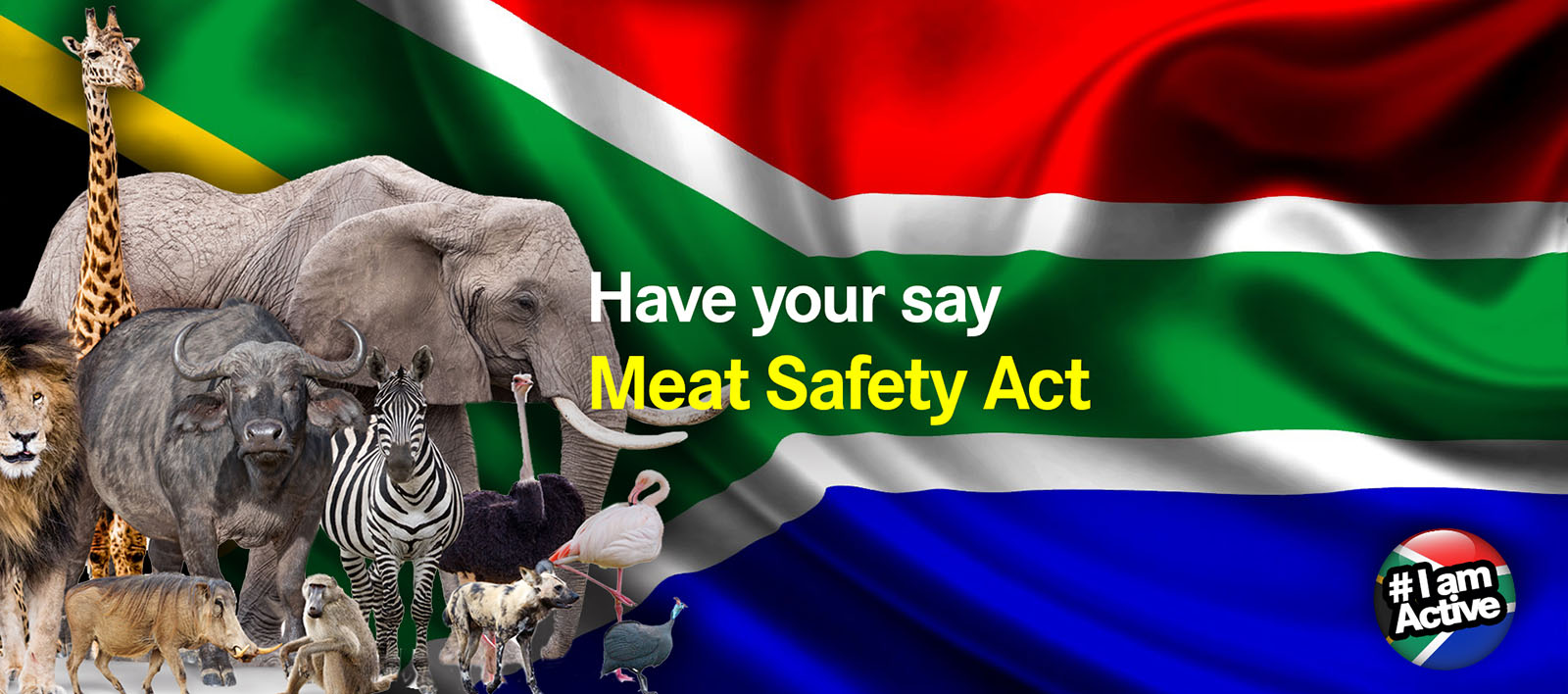(Ms) T. Didiza, Minister of Agriculture, Land Reform and Rural Development invites all interested institutions, organizations and individuals to submit written comments on the proposed update to Schedule 1, as provided for in section 1(2) of the Meat Safety Act, 2000 (Act No 40 of 2000), extending the list of animals to which the Act applies.
43218 participants had a say (now closed)


This draft amendment extends the list classifying animals for slaughter, consumption, import, export and sale to include many threatened species in South Africa including rhino, elephant, giraffe and more. It also includes undefined birds, reptiles and fish.
Have your say – shape this policy.
Important to note; This is a legally mandated public policy-shaping process. By using DearSA’s platform you ensure an accurate record is held by civil society (so government cannot dispute participation facts or figures) which forms a solid foundation for a legal case should the necessity arise. It is not a petition. Your input must, by law, be individually acknowledged and considered by government.
DOWNLOAD DOCUMENTS
IN THE MEDIA
In February of this year, the Minister of Agriculture, Land Reform and Rural Development, Thoko Didiza, proposed an amendment to the Meat Safety Act to include a number of wild animals, including lions, rhinos and elephants.
The Meat Safety Act tries to ensure that meat is safe for consumption via establishing the national standards for abattoirs and regulating the meat trade industry. By including wild animals in the Meat Safety Act, then, the South African government is sanctioning the commercialisation of bushmeat.
The groundwork for the possible large-scale farming of wild animals was laid last year, when the then Minister of Agriculture, Senzani Zokwana, amended the Animal Improvement Act, which saw 33 wild species reclassified as livestock.
In light of the current pandemic, these pieces of legislation should concern us all. The link between wildlife and zoonotic diseases is well documented, but a short recap is merited. [read more]
ENABLING YOU TO SHAPE GOVERNMENT POLICY
DearSA is a legally recognised and constitutionally protected platform which enables the public to co-shape all government policies, amendments and proposals. We’ve run many successful campaigns over the past 18 months and have amassed a considerably large active participant database of close on 700,000 individuals across the country and beyond.
We do not run petitions. We run legally recognised public participation processes which allow citizens to co-form policy at all levels of governance. Whereas petitions, even if they contain thousands of signatures, are considered as a single submission by government, our process ensures that each comment made through DearSA is recognised and counted as an individual submission by government.
Furthermore, we keep an accurate record of all participation and produce a publicly available report at the end of each project. This report forms the foundation of a sound legal case should the necessity to challenge the decision arise.
Participation costs you NOTHING, and is so easy and quick to through DearSA that you really have no excuse not to help shape policy BEFORE it becomes law. Legally challenging implemented law is costly and rarely successful. Prevention is better than cure.
Participation in decision-making processes means a possibility for citizens, civil society organisations and other interested parties to influence the development of policies and laws which affect them. We’ve made it easy for you as a responsible citizen of South Africa, to influence government decisions before they are made.


